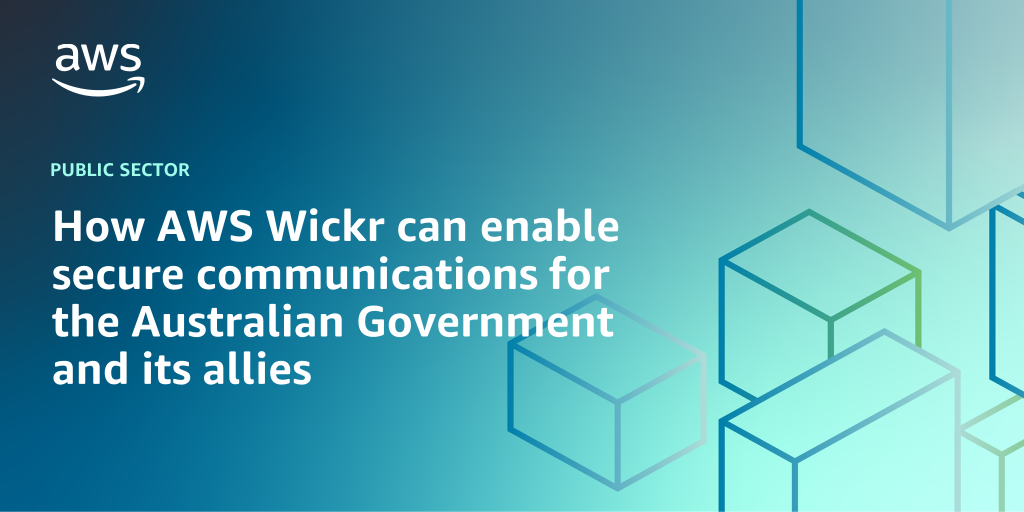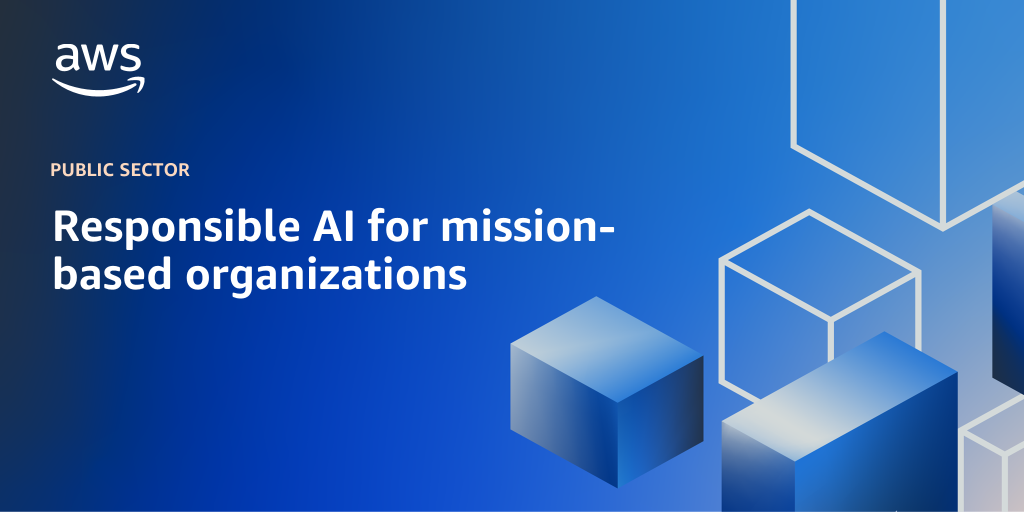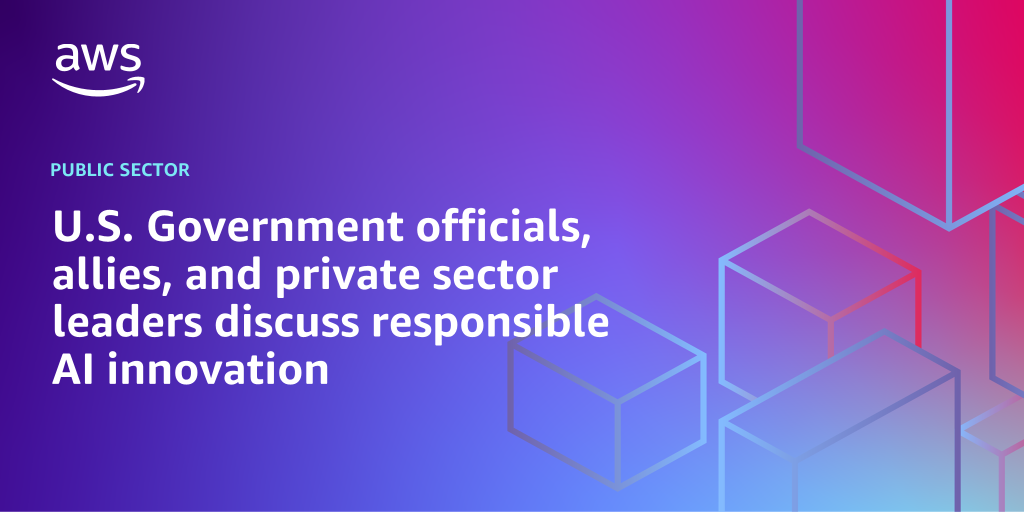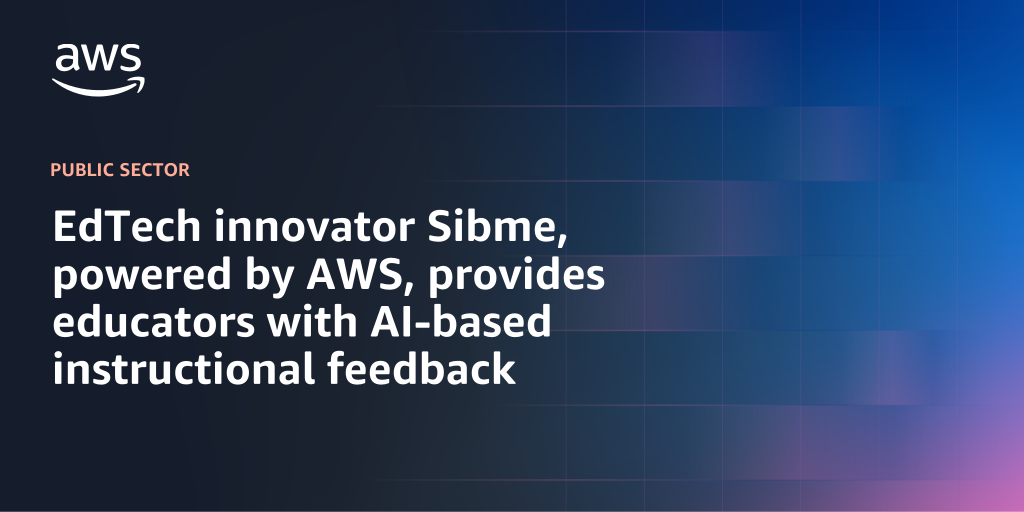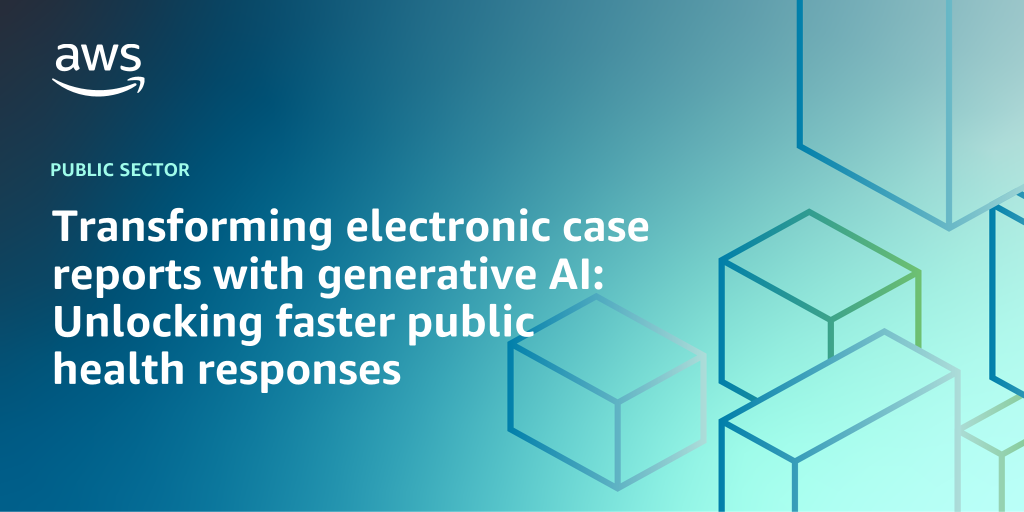AWS Public Sector Blog
Powering education, state, and local leaders: Insights from the AWS IMAGINE keynote
Kim Majerus, vice president of global education and US state and local government for worldwide public sector at Amazon Web Services (AWS), led the keynote address at the AWS IMAGINE conference for education, state, and local leaders. Majerus shared how AWS customers are innovating for their communities with the cloud and announced new public sector initiatives from AWS. Two special guests joined Majerus on stage to share how a culture of innovation is transforming the student and citizen experience at their organizations. Read this post for some of the highlights from the AWS IMAGINE conference keynote.
How AWS Wickr can enable secure communications for the Australian Government and its allies
The use of consumer-grade messaging applications poses significant security and sovereignty risks for Australian Government agencies, making it difficult to meet governmental information management obligations. Official guidance from the National Archives of Australia (NAA) unambiguously states that “instant messaging posts … created or received as part of Australian Government business are Commonwealth records.” Amazon Web Services (AWS) Wickr is an end-to-end encrypted messaging and collaboration service that provides the advanced security, administrative controls, and data retention capabilities government agencies need to protect sensitive information and meet legislative requirements. Read this post to learn more.
Responsible AI for mission-based organizations
Machine learning (ML) and artificial intelligence (AI) are transformative technologies, enabling organizations of all sizes to further their mission in ways not previously possible. But, it is critical to think responsibly about these technologies so that all users are treated fairly, data is appropriately protected, and individuals can make informed choices about consent. In this post, we discuss responsible AI and how you should think about your workloads. This approach will help ensure your AI systems are fair, transparent, and secure.
Analyzing climate risk models on AWS to prevent future food insecurity in Nigeria
The Climate Risk Research Foundation is a nonprofit that supports data-driven climate research. Their goal is to help decision-makers identify the potential impact and magnitude of climate-related risks and develop possible mitigation strategies. We chatted with the organization’s chairman, Brendan Reilly, to learn how its Sustainable Africa Initiative (SAI) is empowering agricultural experts in Nigeria to analyze climate risk models on Amazon Web Services (AWS) to prevent future food insecurity in their local communities.
LocalGov Drupal on AWS serves as a digital transformation resource for local governments
Government organizations face challenges that include tight budgets and rapidly evolving citizen demands. They can address these challenges when they collaborate and share resources to accelerate digital transformation. In the UK, 44 local government bodies—called councils—use an open approach to share expertise and pool resources to transform their web publishing platforms using LocalGov Drupal. The GOV.UK Digital Marketplace includes LocalGov Drupal on Amazon Web Services (AWS). This post explains how councils used collaboration and shared resources to develop this digital public infrastructure which has reduced the cost of building council websites by up to 80 percent and delivered better services.
U.S. Government officials, allies, and private sector leaders discuss responsible AI innovation
On June 27, 2024, Amazon Web Services (AWS) and the Atlantic Council Geotech Center co-hosted an event, “An Allied Approach in the Age of AI,” during the annual AWS Summit Washington, DC. The event convened senior U.S. Government (USG) officials, allied nations’ diplomats, and private sector leaders to discuss approaches to shape the global future of responsible artificial intelligence (AI). This post is a recap of the event, which covered a range of topics including forging effective public-private partnerships, aligning AI governance strategies with allies, debating opportunities and challenges in the age of AI innovation, and building responsible, resilient AI systems.
EdTech innovator Sibme, powered by AWS, provides educators with AI-based instructional feedback
As a teacher with the KIPP charter school network in Houston, Texas, Dave Wakefield knew there had to be a better way for educators to gain insightful feedback on their instruction. Traditionally, educators who wanted feedback on their teaching either had to have someone visit their classroom or film themselves and then send that video to a mentor or peer for review. In 2013, Wakefield founded education technology (EdTech) company Sibme as a way to use technology, powered by Amazon Web Services (AWS), to help educators access quicker and more reliable feedback.
AWS Skills to Jobs Tech Alliance expands to Texas
The tech industry in the state of Texas is booming, with a growing demand for skilled workers in cloud, information technology (IT), software development, and data analytics roles. To help meet this demand for talent, the Amazon Web Services (AWS) Skills to Jobs Tech Alliance is expanding into Texas, with support from key collaborators across industry, education and government. The alliance aims to help modernize tech programs of study at higher education institutions, connect learners to in-demand tech jobs, and support the development of a highly-skilled tech workforce in the Lone Star State.
Celebrating the 2024 AWS Champions: Trailblazers transforming communities through the cloud
Amazon Web Services (AWS) is proud to announce the 2024 cohort of AWS Champions, and the expansion of the program to AWS education and government technology (EdTech, GovTech) partners. The AWS Champions program recognizes individuals and organizations pioneering meaningful, cloud-powered change to improve outcomes, build resilience, and accelerate progress in service of their respective missions, constituents, and communities.
Transforming electronic case reports with generative AI: Unlocking faster public health responses
For years, public health agencies have relied on paper-based case report forms to supplement the electronic laboratory reports (ELRs) they receive for reportable diseases. While ELRs provide positive test results, the accompanying case reports give public health agencies critical clinical, demographic, and risk factor data needed for effective disease investigation and response. However, the sheer volume of COVID-19 cases quickly overwhelmed this manual, paper-based process. Prior to the pandemic, the Office of the National Coordinator for Health IT (ONC) and the Centers for Disease Control and Prevention (CDC) developed standards for an electronic case report (eCR) form that could be automatically sent to public health agencies from providers’ electronic health records (EHRs).

